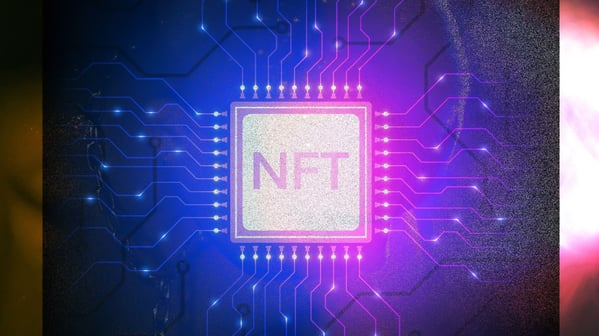Game NFTs: What to Do and What Not to Do
by Game Marketing Genie, on 29-Mar-2022 11:32:22
Non-fungible tokens (NFTs) are all the rage, with NFTs ranging from famous internet memes to the source code of the World Wide Web selling for millions of dollars. NFT games have been booming since the launch of CryptoKitties on Ethereum network in 2017, but their adoption in the mainstream gaming industry has been a contentious topic.
While the big game creators have indicated an interest in cryptocurrency and NFT-based games, numerous players have raised fears that the introduction of these tokens would result in the commercialization of their gaming time. For artists, the easier it is for someone to mint NFTs, the more likely it is that someone will forge work that isn't theirs.
On the other hand, there's also a batch of players, devs, and game makers united in the broader blockchain gaming movement. However, many in the industry also wonder whether the backlash against NFTs will slow or stop the mainstream adoption of blockchain technology before they are used to exploit or abuse unwitting customers.
It's one thing for large game publishers to dig into blockchain; it's quite another for the market to embrace it and turn it into a vast and profitable area.
Given this divisiveness, here are some dos and don'ts for you to consider when introducing game NFTs to your audience.
Do: Conduct some research on your audience and what they want
Brands that don't correctly understand the gaming audience risk marketing to players uninterested in game NFTs. It's critical to understand your target demographic and what games they want to play. Surprisingly, the gaming audience has a depth that not all companies understand.
On the flip side, some mainstream players are backing up NFT games with time and money. According to analytics platform DappRadar, the trading volume for NFTs reached $10.67 billion in the third quarter of 2021, up 704% over the previous quarter. The increased popularity of NFT games is one element driving the skyrocketing trade volume.
During that time, in-game NFT items produced $2.3 billion in trading volume, accounting for 22% of the total. That proves that a lot of money is flowing into this new technology entering the gaming industry.
Figure 1: The most popular NFT games as of January 10, 2022, based on user count. Source: Statista
According to research by Statista, NFT games are reaching an outstanding player in the hundreds of thousands. This data clearly shows that blockchain gaming is the driving force behind many new entrants to the market.
But don’t forget - you must conduct your own research to get a taste of what your target gaming audience is like. Remember, gamers fall into many categories and demographics within the broader gaming industry. Which ones will truly appreciate what you have to offer?
Don't: Force NFTs into your game
NFT games currently offer virtual game land, characters, add-ons such as NFT character skins, and even the possibility to appear in the game as an NPC. The value of these game-related NFTs, on the other hand, is only as high as the game's popularity and lifespan. Some players view NFTs as little more than novelty features introduced to popular games for publishers and developers to generate more money by selling gamers exclusivity and game ownership.
GSC Game World, the Ukrainian developer behind S.T.A.L.K.E.R., initially planned that the new game in the series would include NFTs. But thousands of fans took to Twitter and Reddit to rally against NFTs in the sequel, saying that the game developer was only trying to extort more money from its users. The criticism was so strong that GSC swiftly changed its decision and scrapped the NFT initiative.
Figure 2: GSC Games decided not to include NFTs in its games. Source: Twitter
This discontent has been widespread in the gaming community, where users and significant game studios such as Ubisoft, Square Enix, and Zynga have increasingly clashed over cryptocurrency. In many of the battles, the gamers have gained the upper hand — at least for now.
The lesson here is that if your game can't organically include NFTs, pushing it won’t do you any favors. While crypto-assets may be all the rage, remember it is still in its early stages. While this trend may fade away in future, a hurt market reputation can take you years to rebuild.
Do: Educate your audience about your NFTs
NFTs made significant progress in 2021, but recent pushback from gamers and game creators might reverse that gain. Only better communication from blockchain game advocates will change this.
There are many negative perceptions and a lack of understanding of NFT games among mainstream audiences. It is up to gaming studios and the broader blockchain ecosystem to engage these audiences and show how this technology can benefit game economies and players.
Be aware of the impact that social media has on promoting an NFT project. Don't simply believe that crypto enthusiasts are the only ones interested in NFT technology - the benefits that NFTs provide is appreciated by the general population as well. As a result, when publishing on social media, you should begin with informative posts that can help the average person comprehend how buying your NFT assets can benefit them.
Take a cue from well-known NFT influencers who have used social media to educate, advocate, and even entertain their followers on the topic. Gary Vee is one of the top voices who has been relaying the "whys and whats" of NFTs. He also used NFTs to market his books before they were up for sale.

Don't: State things that aren't true or that you cannot verify
Investing in stuff you don't understand or that doesn’t benefit your players should be avoided. This is necessary to ensure that you soundly understand the NFT you're marketing and the audience you’re marketing to.
Before you invest, do some research to see if there is a solid community of users and how many purchasers have previously supported similar markets. Data must back anything you say to promote your game. For instance, even if NFTs are a booming market, it doesn't mean that their value is guaranteed to increase - so don’t say that your NFTs will surge in value after purchase.
Here are two reasons that making these kinds of statements can be harmful to your brand:
- If your audience is interested in NFTs, they likely know how to spot a false promise. They may even know more than you in some scenarios, so you risk losing credibility by overpromising.
- It can also cause problems in future. NFTs come with legal obligations, so you must be well versed in them beforehand to avoid getting caught in complications.
Do: Make it authentic
Unscrupulous people are everywhere; the crypto world is no exception. Of course, we've seen many NFT-related scams reported on social media, which has made many players opposed to the "too perfect to be true" marketing gimmicks. Authenticity is the game you want to play if you want your audience to buy.
Influencer marketing is one way to bring in a real impact for your game NFTs' promotion. You can collaborate with verified creators and artists by making sure they benefit from the transaction too. While NFTs can generate ongoing revenue for your business, you can also use this to create good PR.
Similarly, you can also use NFTs to support important issues. Many customers, particularly the Gen Z generation, value social activism, and they want the companies they support to reflect this belief. Using NFTs to raise awareness and funds for social issues may help your organization establish credibility in two places: as an early adopter of technological innovations and as a socially responsible business. Also consider the emissions created by NFTs and the effect this may have on your audience’s willingness to purchase.

Don't: Skimp on your marketing
Although NFTs are a one-of-a-kind asset, digital marketing in this space follows similar rules to a regular product’s marketing strategy.
To be effective, you must first build a sound digital marketing strategy that outlines your marketing objectives and maps a plan to achieve them. It's difficult, if not impossible, to stand out among the crowd on NFT trading platforms without a well-defined approach. While these platforms are relatively accessible, they are getting increasingly congested as the popularity of NFTs grows. We suggest you start early, even before your game is ready, and warm up your audience until you launch.
Remember that relationship building is essential in this case. Choose a channel that is relevant to your product and target audience.
These channels, in our experience, operate best with most game NFTs:
- Social media advertising (Discord, Reddit, Twitter, etc.)
- Public relations (media houses, game influencers, crypto influencers, etc.)
- Affiliate advertising (discount codes, giveaways, etc.)
- Email marketing (newsletters, crypto publications, etc.)
If you want to learn about some strategies you can use to market your crypto game, let us tell you How to Market Your Blockchain Game To Mainstream Players.
Do: Give your players incentive to purchase
For gamers, playing video games is about competition and accomplishment. If you want to get players intrigued, think of their role in your game. Also, be sure to factor in the exclusivity of ownership in your game. This is appealing because it allows participants to profit from the sale of purchased NFTs. Furthermore, actual ownership provides additional incentives to participate and can be a consistent way to encourage user retention.
The Sandbox is an example of a game that naturally factors in NFTs as incentives. Within this 3D game, players can create and exchange virtual objects in a voxel-based gaming metaverse. Players can take advantage of this opportunity to access the platform's marketplace, where they can purchase in-game items that will help them go farther in the game.
Figure 3: The Sandbox sells NFTs within the game. Source: Sandbox Game
Your crypto game marketing guide
Wait - there's more! Get your crypto game the hype it needs The Top Crypto Game Marketing Guide.
All stakeholders need to dive into the wider discussion about blockchain technology, including NFTs, cryptocurrencies, and their applications in games. Adopting these concepts into games is challenging and is yet to find its true direction. In the meantime, these pointers will help you adopt the right strategies to market your game effectively.
As crypto games evolve, you will need a marketing partner that keeps up with these changes and guides you in the path you need to take. With its years of expertise and specialization in gaming, Game Marketing Genie is the right partner for your needs. We develop powerful game marketing strategies based on solid market research to give you the best exposure. Our team will help you position your games in front of your audience in the best possible light.
Schedule your free consultation call today!


